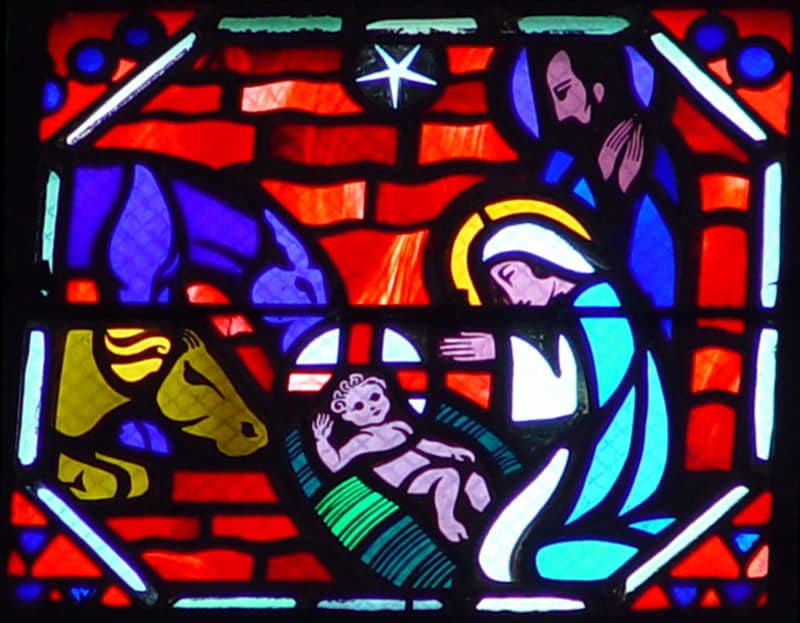This essay also appears in our weekly newsletter.
There may be some disappointment in the air when the Gospel reading for Christmas is not what a Jewish friend of mine calls “Linus’s speech.” My friend is referring to the speech that Linus delivers during the TV special “A Charlie Brown Christmas,” where Charlie Brown asks plaintively, “Isn’t there anyone here who knows the real meaning of Christmas?” His friend Linus does, and he recites the passage from Infancy Narratives in Luke’s Gospel, with Mary and Joseph and the stable and the shepherds and the angels.
“That’s what Christmas is all about, Charlie Brown,” says Linus at the end of his recitation.
The Word, the Second Person of the Trinity, did something amazing. He came to live with us.
By contrast, the Gospel reading for Christmas Day this year is the beginning of the Gospel of John, perhaps as far as you can get from the homey sensibility of the familiar scene painted in Luke, the inspiration for billions of Christmas cards. Instead, John gives us what seems likes a bit of Greek theology, with the Word (ho logos) being one (consubstantial) with God. As Francis Moloney, S.D.B., notes in the Sacra Pagina series of biblical commentaries, this passage shows that Jesus is the “incarnation of the pre-existing Word.”
That may sound too philosophical (or at least too theological) for Christmas, but an essential point is being made. Jesus is one with the Father. Moreover, the Word, the Second Person of the Trinity, did something amazing. He came to live with us.
The Spiritual Exercises of St. Ignatius Loyola includes a marvelous section called the “Meditation on the Incarnation,” in which the person making a retreat imagines the Trinity looking down on the people in the world and seeing “some in peace and others in war; some weeping and others laughing; some well, others ill; some being born and others dying.” Then, out of compassion, the Trinity decides to send the Second Person to earth. Thus, the Word became flesh.
I’ve always loved that meditation because it speaks of an intentionality in the heart of the Trinity: The Trinity wants to do this for humanity. And wants to do it so badly that the Word becomes flesh.
But there’s an even more beautiful image to come: “The Word dwelt among us.” The Greek word used here, eskēnōsen, means that the Word “pitched his tent” among us. We are meant to think of God coming into a dwelling of tents and simply living next to us.
Anything that an LGBTQ person has felt, Jesus has felt: joy and sorrow, isolation and inclusion, rejection and inclusion.
There’s even more! God enters the world in the most vulnerable way possible—as an infant. Just think: God could have chosen to come as a great king or powerful warrior or learned scholar, simply walking out of the Judean desert. But instead, out of love for us, and out of a desire to experience all that we experience, he comes as a baby. That means that Jesus not only entered the world with a human body—that got tired and had aches and pains—but entered a world of violence and warfare, division and polarization, famine and sickness. God knows us intimately.
For LGBTQ people, this indeed should be news of “great joy,” to return to the Lukan narrative. It means that anything that an LGBTQ person has felt, Jesus has felt: joy and sorrow, isolation and inclusion, rejection and community. And God loved us so much that he was willing to undergo all these things, including death, simply so that we could draw closer to him and know how to live. And love!
That’s what Christmas is all about!




